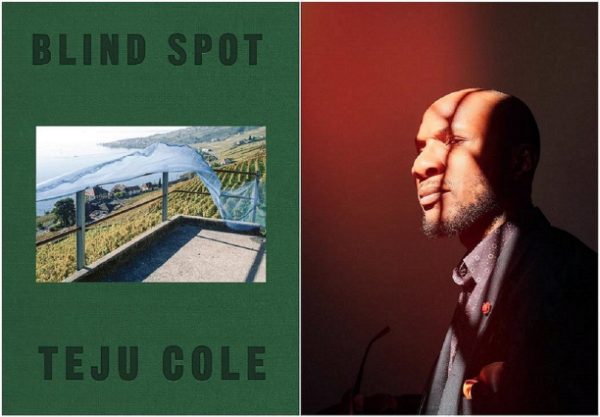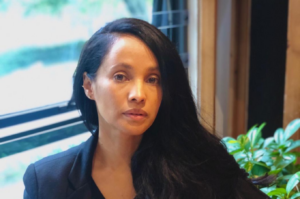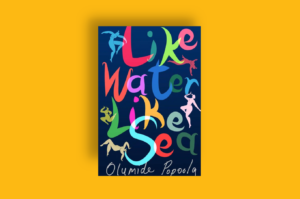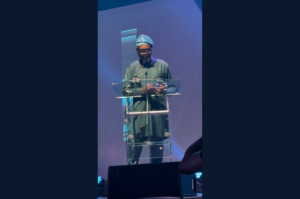
Teju Cole does not repeat himself, which is why his new book, Blind Spot, published two weeks ago, is something unprecedented for him: a collection of photography and prose. It is his fourth book, after the novella Every Day Is for the Thief (2007, 2014), the novel Open City (2011), and the essay collection Known and Strange Things (2016).
The book took its title from the last chapter of Known and Strange Things in which Teju narrates how he almost got blind. Its release precedes the New York Times photography critic’s first solo photo exhibition, Teju Cole: Blind Spot and Black Paper (We’ll bring you more on this). Here is a description of the book by its publishers, Penguin Random House.
In this innovative synthesis of words and images, the award-winning author of Open City and photography critic for The New York Times Magazine combines two of his great passions.
One of Time’s Best Non-Fiction Books of 2017 So Far.
When it comes to Teju Cole, the unexpected is not unfamiliar: He’s an acclaimed novelist, an influential essayist, and an internationally exhibited photographer. In Blind Spot, readers follow Cole’s inimitable artistic vision into the visual realm as he continues to refine the voice, eye, and intellectual obsessions that earned him such acclaim for Open City.
Here, journey through more than 150 of Cole’s full-color original photos, each accompanied by his lyrical and evocative prose, forming a multimedia diary of years of near-constant travel: from a park in Berlin to a mountain range in Switzerland, a church exterior in Lagos to a parking lot in Brooklyn; landscapes and interiors, beautiful or quotidian, that inspire Cole’s memories, fantasies, and introspections. Ships in Capri remind him of the work of writers from Homer to Edna O’Brien; a hotel room in Wannsee brings back a disturbing dream about a friend’s death; a home in Tivoli evokes a transformative period of semi-blindness, after which “the photography changed. . . . The looking changed.”
As exquisitely wrought as the work of Anne Carson or Chris Marker, Blind Spot is a testament to the art of seeing by one of the most powerful and original voices in contemporary literature.
The book has drawn praise from The New York Times Book Review, the Los Angeles Times, Slate, The Millions, The Village Voice, among others. Courtesy of VICE, we now have an excerpt.
Read below.
*
Beirut
I peeked into a house in Mar Mikhael for a moment. A black woman was sweeping a stone floor. At the threshold was an image of the Holy Virgin. I saw many black women in Beirut. Those of them in domestic employment, when out on the street, carrying their employers’ children or not, walk behind. Their servitude, their inequality, is made visible. Many of these women are Ethiopian (Ethiopian men are few in Beirut, though male Sudanese laborers are plentiful). The Ethiopian women are hired because they are Christian and English-speaking, desirable qualities in nannies. On Saturday nights, they have semisecret nightclubs away from the glitzy areas. In these clubs (I visited two) they socialize with one another, and with Lebanese, Syrian, and Sudanese men, dancing to Ethiopian, Arabic, and Nigerian music. They are dressed to the nines, their hair is done, and they wear high heels. They look nothing like they do when they are with their employers. And on Sundays, on their day off, you can see them on the street in groups, in white, owing through the street, their spirits shining from having attended church, the condition of servitude briefly lifted. Many of these women are in Lebanon illegally. When they wish to return home, they have to raise enough money to cover the costs of their deportation—transportation as well as fines. When the money is raised, they turn themselves in to the nearest police of officer, and, after a brief spell in jail, they are deported.
Just south of Bachoura is Basta Tahta, where the roads are worse, and there are more posters on the walls, of imams, politicians, and martyrs. Basta Tahta is mixed, but support for Hezbollah is palpable. S guides me through a tangle of streets to a building with a wide-open passage on the ground floor. The passageway stinks, but the source of the smell is not immediately apparent. A couple of doors down in the dark passage, we find the shop belonging to M, a Sudanese barber.
The shop doesn’t smell bad, and it has three chairs. He is working alone. There are customers from South Asia, Bangladeshi mostly, and there’s an hour’s wait. I go walking in the neighborhood, a day of bright sun, which picks out in a rather surreal way the strong colors of things in the street. I see a pair of plastic watering cans that, unexpectedly spotlit by the sun, look like blue flamingos.I return to M’s for my haircut. The power supply is out. He uses mechanical clippers, cutting close to the skull. He’s kind and welcoming, and chats as he cuts my hair, but he is not a good barber. I have bumps in my neck days later, from where he pressed too hard.
I ask to use the bathroom just before I leave. He leads me into the stinking passageway, and opens a door next to the one-room barbershop. It’s a tiny studio apartment, his own I presume. A bed with tangled bedding, a bathroom the size of a closet, one towel, one toothbrush, one bucket, a pit toilet, the bare minimum. The room and the shop constitute M’s kingdom, among people who know nothing of him. Out in the streets, I don’t see other black people. If things go wrong, who will defend him? I feel he is entirely unprotected, a stranger in a strange land.
*
Tripoli
In Tripoli, I thought of Homs, which is an hour’s drive away, only an hour’s drive, which Death now visits. But what can this proximity mean? There were soldiers in the middle of town in Tripoli, a tank. Blast walls painted with the Lebanese cedar. I asked my friends why, and they said they hadn’t even noticed. A Syrian child grabbed my arm and wouldn’t let go.
It takes courage to face the open sea. It is one thing to know in theory that a boat can float, and another to entrust your actual all to it for days. The Phoenicians who lived on this coast knew the sea, were synonymous with it. The piscine grace of their seafaring craft can still be seen, at modest scale, in their descendants’ fishing boats.
They were 53. Some undoubtedly more courageous than others, but each was more courageous than he or she would, in tranquility, have wished to be. This was October last year. You wouldn’t have heard of it. Just another drop in the sea of stories.
Read the full excerpt, and see the photographs, on VICE.









COMMENTS -
Reader Interactions